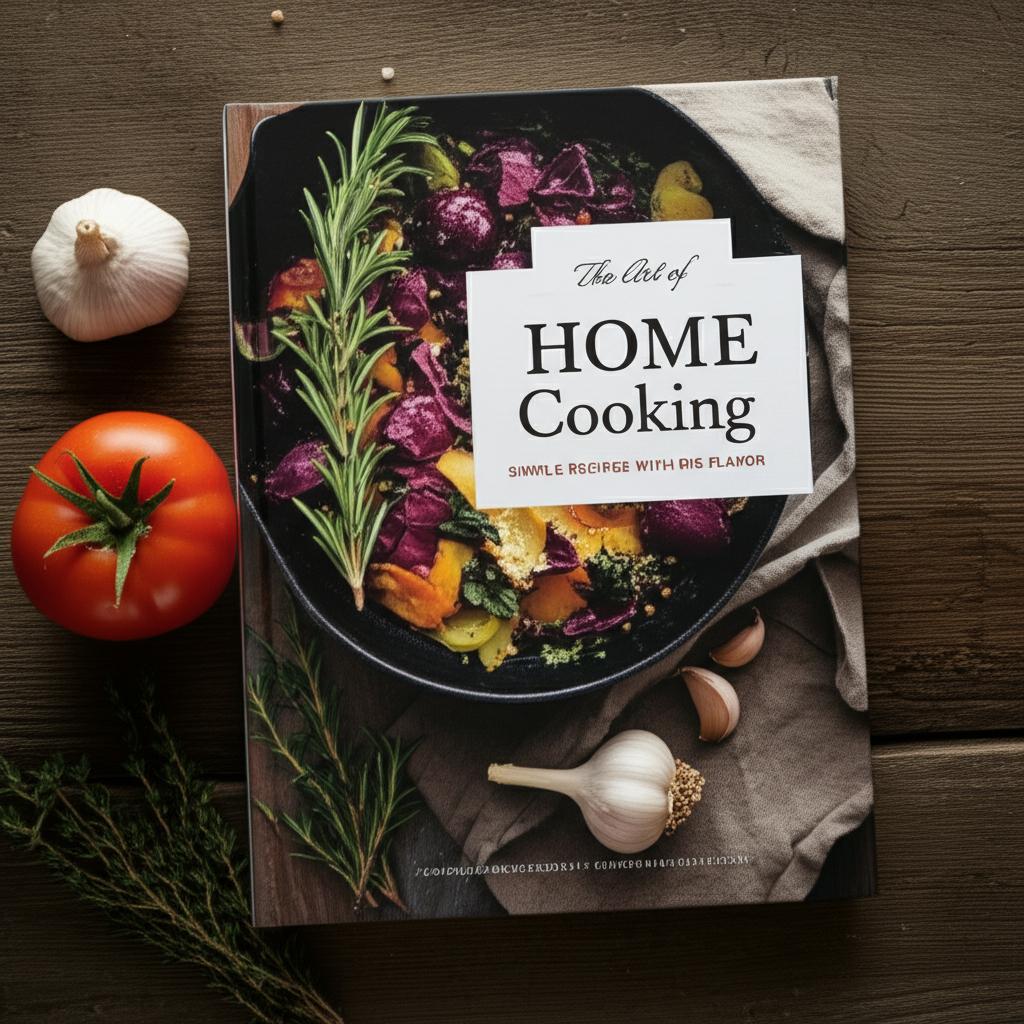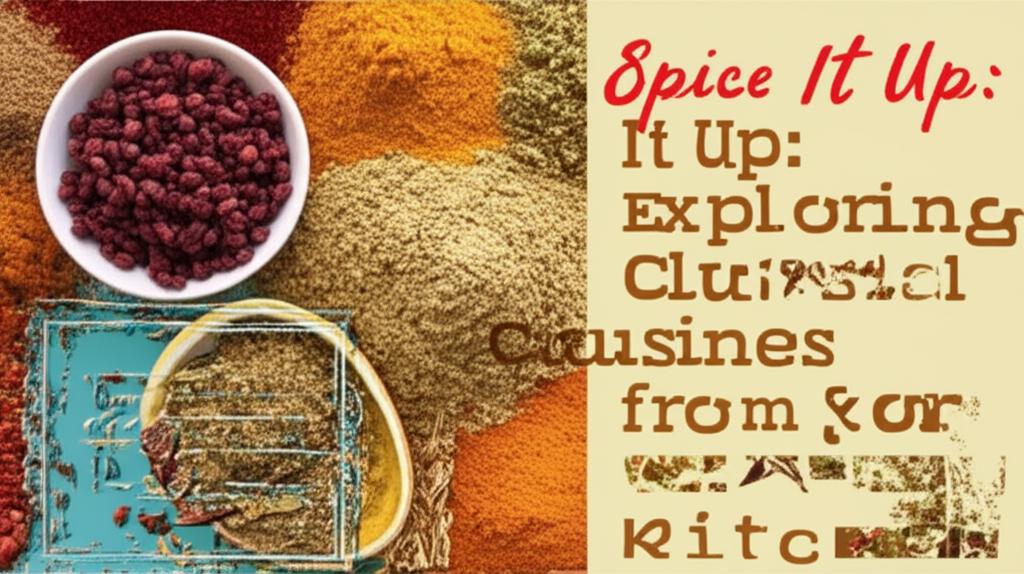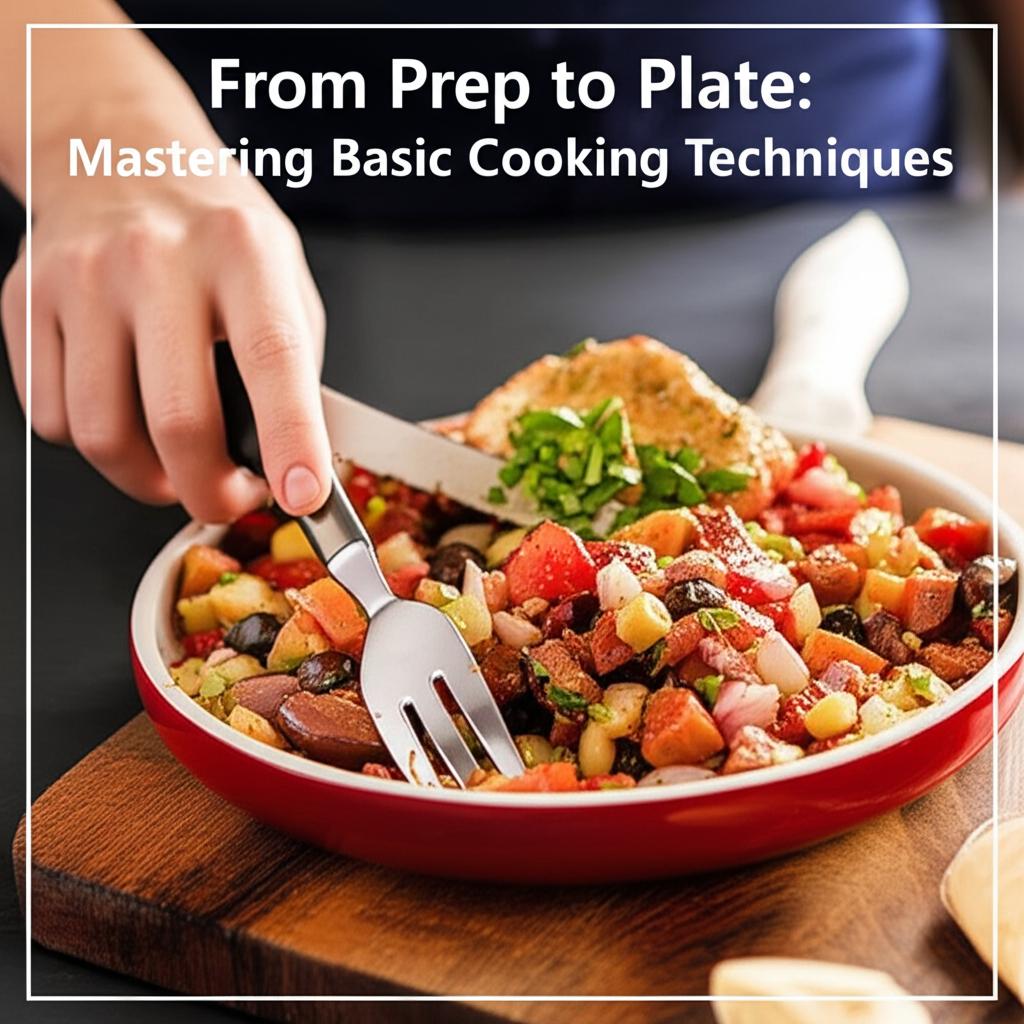We’ve all been there: you buy a beautiful bunch of fresh herbs for a recipe, use a sprig or two, and then watch sadly as the rest wilt away in your fridge. It’s a common kitchen woe, but it doesn’t have to be your reality! Learning how to store fresh herbs for longer can save you money, reduce food waste, and keep your dishes bursting with vibrant flavor.
Imagine reaching for perfectly crisp basil or fragrant cilantro whenever you need it, instead of finding a soggy mess. The good news is, with a few clever tricks and the right tools, keeping herbs fresh for extended periods is totally achievable. From simple kitchen hacks to dedicated herb keeper containers, there are plenty of ways to prolong their lifespan.
In this guide, we’ll dive into practical tips on how to store fresh herbs for longer, ensuring your parsley stays perky and your mint remains mighty. We’ll also explore 10 products that can help you on your fresh herb journey – some are direct storage solutions, while others offer invaluable knowledge about herbs themselves, empowering you to make the most of your leafy green friends!
Why Fresh Herb Storage Matters
Beyond just saving money and reducing waste, proper fresh herb storage ensures that your culinary creations taste their best. Fresh herbs provide unparalleled aroma, flavor, and nutritional benefits that dried versions just can’t quite match. Plus, having fresh herbs on hand encourages you to cook more, experiment with new recipes, and enjoy healthier meals. It’s all about getting the most out of your groceries!
General Tips for Storing Fresh Herbs
Before we jump into specific products, let’s cover some foundational tips for keeping herbs fresh. These simple practices can make a world of difference:
- Treat Them Like Flowers: For delicate herbs like parsley, cilantro, basil, and mint, a great method is to trim the bottom of the stems, place them in a glass with an inch or two of water (like a bouquet), and then cover loosely with a plastic bag. For basil, leave it on the counter; for others, pop them in the fridge.
- Paper Towel Wrap: For sturdier herbs like rosemary, thyme, oregano, or sage, lightly dampen a paper towel, wrap the herbs in it, and then place them in a sealed plastic bag or airtight container in the refrigerator. The dampness keeps them hydrated without making them soggy.
- Don’t Wash Until Ready: Washing herbs before storage can introduce excess moisture, leading to quicker spoilage. Only wash them right before you’re about to use them.
- Trim Any Yellowing Leaves: Before storing, remove any leaves that are already yellow or slimy. These can accelerate the spoilage of the rest of the bunch.
By following these basic fresh herb storage tips, you’re already well on your way to enjoying herbs that last longer. Now, let’s look at some products that can further enhance your herb preservation game!
Top 10 Products to Help You Store Fresh Herbs for Longer (and More!)
Here are some fantastic products that can either directly help you keep herbs fresh or provide valuable insights into the world of herbs.
1. LAWNFUL 2 Pack Fresh Herb Keeper for Refrigerator, Clear

If you’re serious about dedicated herb preservation, the LAWNFUL 2 Pack Fresh Herb Keeper is a game-changer. These transparent containers are specifically designed to give your herbs the perfect environment, helping them stay crisp and flavorful for up to three times longer than traditional methods. It’s an ideal solution for anyone looking to reduce food waste and always have fresh herbs ready for cooking.
- Prolongs life of herbs like cilantro, mint, parsley, asparagus, thyme.
- Transparent design allows easy monitoring of freshness.
- Removable divider for storing different herbs in one container.
- Inner basket with handles for convenient access.
- Made from BPA-free, food-grade plastic.
- Compact size fits easily in refrigerator doors.
-
Available in various colors to complement kitchen decor.
-
Pros:
- Significantly extends herb freshness.
- Thoughtful design for easy use and organization.
- Durable and safe materials.
- Space-saving for fridge organization.
- Aesthetically pleasing options.
- Cons:
- Requires counter or fridge space dedicated to keepers.
- May be too tall for some shallower fridge shelves.
User Impressions: Many users rave about how effective these keepers are, particularly for delicate herbs like cilantro and parsley. They appreciate the clear design for quick checks and the convenience of the inner basket. Some wish they were slightly wider for larger bunches, but overall, they find them invaluable for keeping herbs fresh.
2. The Herbal Alchemist’s Handbook: A Complete Guide to…

While not a physical storage product, “The Herbal Alchemist’s Handbook” offers a deep dive into the properties and uses of herbs, which can indirectly inform better handling and preservation. Understanding the nature of different herbs, as detailed in this guide, helps you appreciate their delicate qualities and ultimately, how to best care for them. It’s an essential resource for anyone looking to go beyond just cooking with herbs and explore their broader applications.
- Comprehensive guide to herbalism.
- Explores various uses and properties of herbs.
-
Aids in deeper understanding of different botanicals.
-
Pros:
- Rich source of knowledge for herb enthusiasts.
- Expands understanding beyond culinary uses.
- Great for those interested in holistic practices.
- Cons:
- Not a direct product for storing fresh herbs.
- Focuses more on traditional/magical uses than modern culinary/storage.
User Impressions: Readers praise this book for its extensive research and detailed information on herbs, calling it a fantastic resource for learning about herbalism from a unique perspective. It’s highly valued by those interested in the mystical and historical aspects of plants.
3. The Encyclopedia of Crystals, Herbs, and New Age Elements:…

Similar to the previous entry, this encyclopedia is a knowledge product rather than a storage device. However, for those who love herbs and want to understand them in a broader context – beyond just culinary use – this book provides a holistic perspective. Understanding the energetic and historical significance of herbs can deepen your appreciation and encourage more mindful use, which sometimes leads to better care and reduced waste.
- Comprehensive encyclopedia covering crystals, herbs, and New Age elements.
- Offers detailed information on various botanical and mineral properties.
-
A useful reference for holistic practices and natural remedies.
-
Pros:
- Extensive and diverse information.
- Good for those interested in alternative healing and spirituality.
- Beautifully presented with engaging content.
- Cons:
- Not a practical tool for how to store fresh herbs for longer.
- Content might be too niche for someone purely seeking storage solutions.
User Impressions: Reviewers find this book incredibly informative and well-organized, often citing it as a go-to resource for exploring the connections between different elements in holistic practices. It’s appreciated for its depth and comprehensive nature.
4. Herb Keeper Set: 2 Pack Herb Saver+1 Pack Herb Scissors+2…

This comprehensive set goes beyond just storage, offering practical tools to help you manage your fresh herbs from start to finish. The two herb keepers provide excellent environments for prolonging freshness, while the inclusion of herb scissors and strippers makes prep work a breeze. It’s a fantastic bundle for anyone who regularly cooks with fresh herbs and wants to maximize their shelf life and ease of use.
- Includes 2 Herb Keepers, 1 Herb Scissors, 2 Herb Strippers.
- Herb Keepers prolong life of herbs like cilantro, mint, parsley, asparagus, thyme.
- Transparent design with removable divider for keepers.
- Keepers made from BPA-free, food-grade plastic.
- 5-blade Herb Scissors for quick and easy cutting.
- Herb Stripper for swiftly removing leaves from stems (kale, thyme, rosemary).
- Compact size of keepers fits well in refrigerators.
-
Keepers available in various colors.
-
Pros:
- Complete kit for herb storage and preparation.
- Keepers are effective at extending freshness.
- Included tools (scissors, strippers) are highly convenient.
- Durable and food-safe materials.
- Space-saving design for fridge.
- Cons:
- The scissors and strippers might be redundant if you already own similar tools.
- Still requires dedicated fridge space for the keepers.
User Impressions: Customers love the versatility and convenience of this set. The herb keepers are praised for their effectiveness, and the added scissors and strippers are often highlighted as surprisingly useful tools that make working with herbs much faster and less messy. It’s a great value for those seeking a complete herb solution.
5. The New Age Herbalist: How to Use Herbs for Healing,…

Another insightful book, “The New Age Herbalist” helps you understand herbs in the context of healing and well-being. While it won’t tell you specific methods on how to store fresh herbs for longer, it will educate you on the properties of different herbs, inspiring you to cultivate, use, and respect them more. This deeper connection often leads to a desire to preserve their vitality and benefits, indirectly encouraging better storage practices.
- Focuses on using herbs for healing and wellness.
- Explores the properties and applications of various herbs.
-
A resource for holistic health enthusiasts.
-
Pros:
- Provides valuable knowledge on herbal medicine.
- Inspires a deeper connection with plants.
- Well-written and informative.
- Cons:
- Not a direct guide or product for fresh herb storage.
- Content might be too focused on medicinal uses for some.
User Impressions: Readers find this book to be an excellent introduction to herbalism and natural remedies. It’s often recommended for its clear explanations and practical advice on using herbs for health, making it a valuable addition to any holistic library.
6. Medical Medium: Secrets Behind Chronic and Mystery Illness…

This book by Anthony William, the Medical Medium, emphasizes the healing power of foods, including fresh herbs, in addressing various health issues. While it doesn’t detail how to store fresh herbs for longer, it heavily promotes their consumption for detoxification and healing. If you’re inspired by this philosophy, you’ll naturally want your herbs to be as fresh and potent as possible, thereby motivating you to find the best preservation methods.
- Explores the root causes of chronic illness.
- Promotes the healing power of specific foods, including herbs.
-
Offers guidance on detoxification and dietary changes.
-
Pros:
- Offers a unique perspective on health and wellness.
- Inspires healthy eating and the use of natural ingredients.
- Potentially life-changing for those seeking alternative health solutions.
- Cons:
- Not about fresh herb storage.
- Content is highly specific to the author’s theories.
User Impressions: The book has a strong following, with many readers reporting significant health improvements by following its dietary and lifestyle recommendations. It’s often described as revolutionary and eye-opening for those struggling with chronic conditions.
7. HERBS PRESERVATION FOR BEGINNERS: Quick and easy ways to…
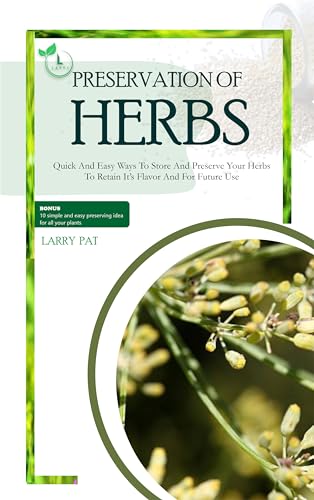
This book is directly on theme! “HERBS PRESERVATION FOR BEGINNERS” offers a practical guide to various methods of keeping herbs usable beyond their fresh state. While it might cover more than just “fresh” storage (like drying or freezing), it provides a valuable resource for anyone who wants to avoid wasting their herb harvest. It’s perfect for those who want to learn different techniques for herb preservation methods.
- Practical guide to preserving herbs.
- Covers various techniques like drying, freezing, and more.
-
Aimed at beginners with easy-to-follow instructions.
-
Pros:
- Highly relevant to the topic of herb longevity.
- Provides diverse preservation techniques.
- Great for beginners looking to extend their herb supply.
- Cons:
- Not a physical storage product itself, but a guide.
- May cover methods beyond just “fresh” storage.
User Impressions: Users appreciate this book for its clear, concise, and practical advice on preserving herbs. Many find it invaluable for making their herb gardens or market purchases last much longer through various easy-to-implement methods.
8. Ball canning book: 130+ Proven Recipes & Step-By-Step…
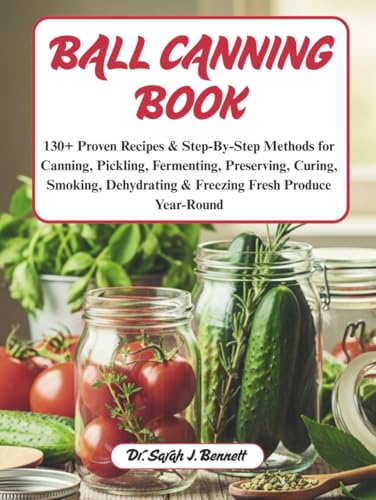
The “Ball Canning Book” is a classic for a reason! While its primary focus is canning (a long-term preservation method), it’s a fantastic resource for anyone interested in food preservation, including herbs. While not for fresh storage, learning about canning can open up new possibilities for preserving large batches of herbs in vinegars, oils, or as part of sauces and jellies, significantly reducing waste over the long term.
- Extensive collection of canning recipes (130+).
- Step-by-step instructions for various canning techniques.
-
Covers fruits, vegetables, jams, jellies, and more.
-
Pros:
- The definitive guide for home canning.
- Excellent for long-term food preservation.
- Reliable and well-tested recipes.
- Cons:
- Focuses on long-term canning, not short-term fresh herb storage.
- Requires specific canning equipment.
User Impressions: This book is consistently rated as the go-to guide for canning, praised for its reliability, clarity, and comprehensive recipe selection. It’s a must-have for anyone serious about home food preservation.
9. Food to Live Whole Allspice Berries, 5 Pounds – Jamaican…

Allspice berries are a beautiful example of a dried, preserved spice that offers robust flavor! While this isn’t a fresh herb, including it here highlights the journey of herbs from fresh to dried and how they can be stored indefinitely in this form. It also reminds us that while fresh is great, dried herbs and spices are an essential part of a well-stocked kitchen, offering a convenient, long-lasting alternative.
- Premium quality whole Allspice Berries.
- Kosher & suitable for various diets (Vegan, Paleo, Keto in moderation).
- Rich in Calcium, Potassium, Magnesium, Vitamins A and C, Phosphorus, and Folate.
- Versatile spice for baked goods, grains, pickling, and beverages.
-
Perfect for grinder refills to enjoy freshly ground flavor.
-
Pros:
- High-quality, versatile spice.
- Nutrient-rich and suitable for many diets.
- Long shelf life when stored properly (as a dried spice).
- Great for fresh grinding for maximum flavor.
- Cons:
- Not a fresh herb, but a dried spice.
- Not a storage solution for fresh produce.
User Impressions: Customers highly praise the quality and freshness of these Allspice berries, noting their potent aroma and flavor. They are a popular choice for those who prefer to grind their own spices for superior taste in their cooking and baking.
10. Essential Oils Beauty Secrets Reloaded: How To Make Beauty…

This book delves into the world of essential oils, which are highly concentrated extracts from plants and herbs. While not about storing fresh herbs for culinary use, it connects to the broader theme of utilizing botanical properties. Understanding how essential oils are derived and used can inspire a greater appreciation for the plants themselves, and perhaps even encourage cultivating and preserving fresh herbs for various purposes, including making your own infusions.
- Guide to making DIY beauty products with essential oils.
- Explores the benefits and uses of various essential oils.
-
Offers recipes for skincare, haircare, and more.
-
Pros:
- Useful for those interested in natural beauty and aromatherapy.
- Provides practical recipes for homemade products.
- Connects to the use of plants beyond food.
- Cons:
- Not directly related to how to store fresh herbs for longer for cooking.
- Focuses on a niche application of herbs (essential oils).
User Impressions: Reviewers find this book to be a helpful and inspiring resource for creating natural beauty products. It’s often recommended for its clear instructions and diverse range of recipes, making it popular among DIY beauty enthusiasts.
Beyond the Refrigerator: Other Preservation Methods
While keeping herbs fresh in the fridge is ideal for short to medium-term use, what if you have an abundance or want to preserve them for even longer?
- Freezing Herbs: This is a fantastic way to extend the life of many herbs for months. You can chop them finely and freeze them in ice cube trays with a little water or olive oil, or simply chop and store in freezer bags.
- Drying Herbs: A classic method, drying works well for robust herbs like rosemary, thyme, oregano, and sage. You can air-dry them, use a dehydrator, or even a low oven. Once dried, store them in airtight containers away from light and heat.
- Herb Butters/Oils/Vinegars: Infusing herbs into butter, oil, or vinegar is another delicious way to preserve their flavor and use them in cooking.
These methods ensure that no fragrant leaf goes to waste, letting you enjoy the bounty of your herbs all year round!
Conclusion
Mastering how to store fresh herbs for longer is a simple yet impactful skill that elevates your cooking and reduces food waste. Whether you opt for basic kitchen hacks, invest in specialized herb keepers, or explore broader preservation methods, the effort is well worth it. From keeping your cilantro crisp for an extra week to learning how to dry your own oregano, every step helps you savor the incredible flavors and aromas that fresh herbs bring to your table. So, go ahead, grab that beautiful bunch of herbs – you’ve got this!
FAQ Section
Q1: What’s the best way to store basil for longer?
A1: Basil is a bit finicky! It’s best stored at room temperature, not in the fridge, as cold can turn its leaves black. Trim the stems, place the bunch in a glass of water like a bouquet, and cover loosely with a plastic bag. Keep it on your counter, away from direct sunlight, and change the water every couple of days.
Q2: Can I freeze fresh herbs? How?
A2: Yes, absolutely! Freezing is a great way to preserve herbs for months. You can chop delicate herbs (like basil, parsley, cilantro) and place them in ice cube trays, covering them with water or olive oil before freezing. Once solid, transfer the cubes to a freezer-safe bag. For sturdier herbs (like rosemary, thyme), you can simply wash, pat dry, chop, and store them directly in freezer bags.
Q3: How long do fresh herbs last in the refrigerator using proper storage methods?
A3: With proper storage methods (like the water-glass method or damp paper towel wrap), delicate herbs like parsley and cilantro can last 1-2 weeks, while sturdier herbs like rosemary and thyme can last 2-3 weeks or even longer. Dedicated herb keepers often extend this further.
Q4: Is it better to dry or freeze herbs for long-term storage?
A4: It depends on the herb and your intended use. Drying is excellent for herbs with strong flavors that maintain their aroma well when dried (e.g., oregano, thyme, rosemary, bay leaves). Freezing is better for preserving the fresh flavor and vibrant color of more delicate herbs (e.g., basil, cilantro, parsley, chives) for use in cooked dishes, though their texture might change slightly.
Q5: What are LSI keywords and why are they important for SEO?
A5: LSI stands for Latent Semantic Indexing. LSI keywords are words and phrases that are semantically related to your main keyword. They aren’t just synonyms but related concepts. For example, for “how to store fresh herbs for longer,” LSI keywords might include “herb preservation methods,” “refrigerator storage,” or specific herb names like “cilantro storage.” They are important because they help search engines understand the full context and topic of your content, improving your ranking for a wider range of relevant queries and signaling high-quality, comprehensive information.
Q6: Can I store different types of herbs together?
A6: Generally, yes, if they have similar moisture requirements. However, it’s often best to store delicate herbs (like basil, cilantro, mint, parsley) separately from sturdier, drier herbs (like rosemary, thyme, oregano). Some herb keepers include dividers for this purpose. Just ensure they are not overcrowding each other and that any moisture levels are appropriate for each type.
Q7: How can I tell if my fresh herbs have gone bad?
A7: Look for signs of wilting, discoloration (yellowing or blackening), sliminess, or a strong, unpleasant odor. If they feel soft, mushy, or have any visible mold, it’s time to discard them. Fresh herbs should look vibrant, feel firm, and smell fragrant.
